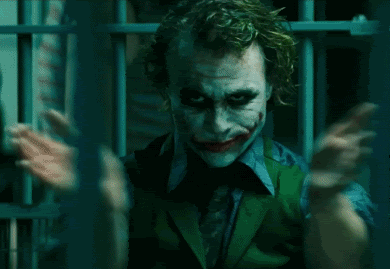It doesn't matter why fans don't like it, that's my point. When you purchase story driven media you run the risk of not liking the story. You don't go pout on the internet until the great big mean faceless corporation puts a bandaid on it for you. Suck it up, it's a game. If you're that offended by it don't buy their dlc, or their next game.
Paul, normally I'd agree with you. A work of art is created and it's not the responsibility of the artist to answer to those consuming it. From the start, Mass Effect developed an entirely different pact with its customer. This is completely unlike any other medium, or game, in which certain narrative expectations that related to their in-game actions were expected.
The only place this comes up in film is with genre films like westerns or horror films - but there the process between what the producer provides and what the customer wants is a long, iterative process (genre tropes are expected, get stale, transform, etc. over long cycles of films) that doesn't affect the integrity of any one film and doesn't interfere with the presumed autonomy of the production itself. In other words, fans can only react by not liking the film and hope the producers respond to their judgment in subsequent films. As you stated, if you don't like it, don't buy it.
A slightly different analogy would be with serialized fiction (like Charles Dickens) that was released in one-chapter installments, so feedback and response from the reader could come in as the whole narrative was actively being written.
But that still maintains a strict duality between producer/author and consumer, whereas here the game's respect for and built-in means of recognizing the gamer take away the autonomy of the creators in the kind of experience they are providing.
Also, all the rules of narrative from Aristotle down involve certain recognizable and relatively stable story structures, and things that are avant-garde or innovative are always innovative in relation to or against the regular expectations of how story functions (in other words, philosophical coherence, the stable relation of all the parts to the overall whole, resolution that further makes sense of and provides closure to what came before it).
Here, the demands that gamers are making are two-fold: 1) for the game to both recognize and respond to their unique actions, and 2) for the endings to maintain philosophical and narrative consistency with all that came before it.
Maybe the creators felt that these two things worked at odds with one another and to provide satisfying narrative resolution they had to bring all the branching strands created by individual action together into three parallel but structurally similar conclusions...
But that's assuming that the act of story writing for this game was essentially that of a multi-branched narrative, which I don't believe. ME was more complicated than that, where the narrative itself was a consequence of opinion. In this sense, for the Mass Effect franchise, unlike perhaps all other forms of art to this scale, the consumer and artist become one in the same. Maybe that's why the backlash is unprecedented.
This is the best article I've read on the subject:
Mass Effect 3 Ending-Hatred: 5 Reasons The Fans Are Right | GameFront
All of us are of the opinion that fans have or do not have a right for an alternative ending. But I submit that there is objective reasoning justifying the acknowledgement that the ending is pure crap. Whether that acknowledgement turns into a DLC is up to Bioware. But for a game based on player choice and consequence, not having a choice or any consequences in the end is the ultimate kick in the daddybags; a violation of narrative structure.
HOLD THE LINE!


